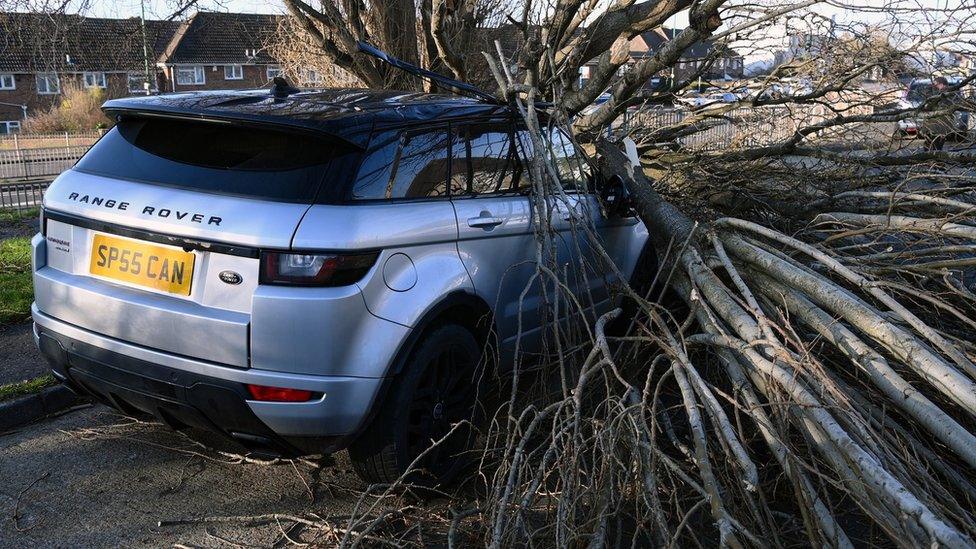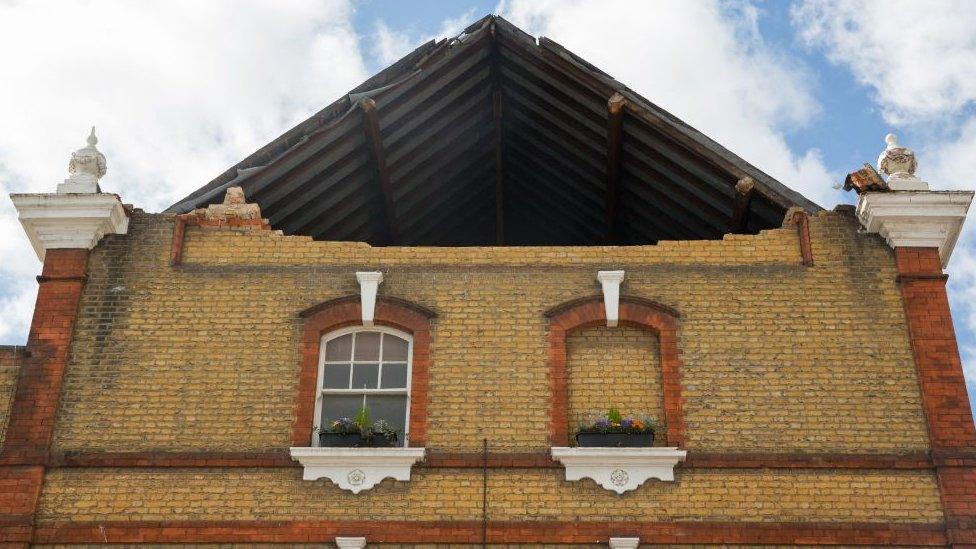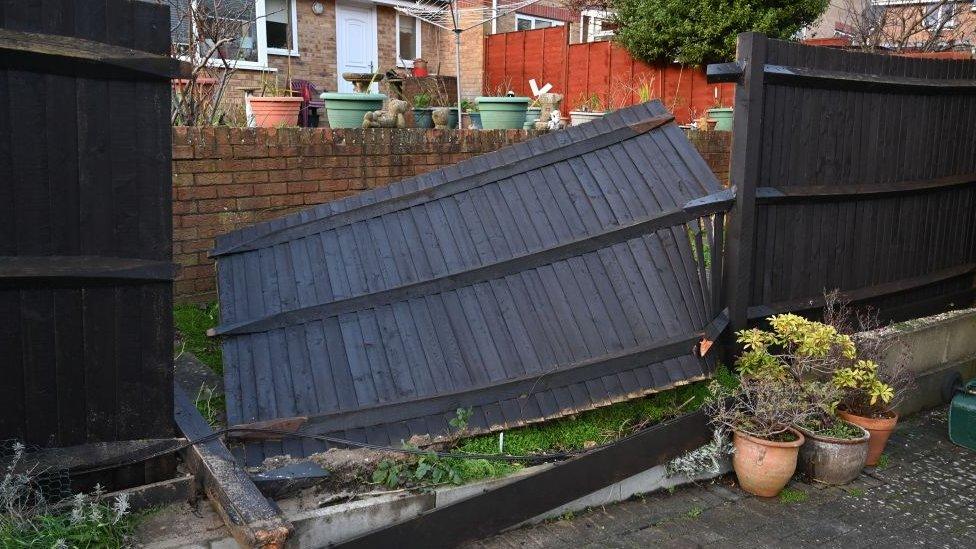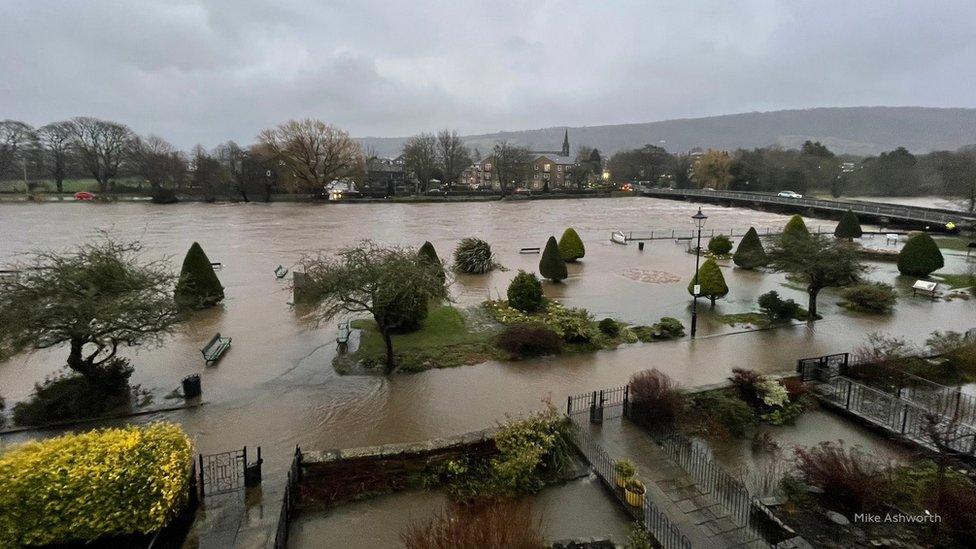Storm Franklin: How do I claim for damage?
- Published
- comments

People who dusted off their insurance policies when Storm Eunice hit the UK should keep them handy as more bad weather is on the way - this time with Storm Franklin.
The Met Office has issued an amber wind warning for Northern Ireland for Monday morning and yellow ones for parts of the UK from Sunday.
It has said that Storm Franklin's high winds could cause further power cuts, transport delays and damage to properties.
What counts as storm damage for insurers?
The insurance company Aviva says a storm generally involves violent winds, accompanied by rain, hail or snow which is "capable of causing damage to a building in a one-off event".
According to its own research, about 6.4 million households have previously experienced damage to their homes due to extreme weather.
Will my insurance cover storm damage?
People should check their buildings and contents insurance policies, but most insurers will cover damage caused by storms.
However, it is important to check the wording as some things are not covered. For example, most building insurance policies will not pay out for storm damage to fences, hedges or gates.
Insurers don't generally cover damage to buildings which are already damaged or have maintenance issues, such as:
Cement or mortar deterioration on brickwork and chimneys
Failed render on the outside of the building
Existing deterioration to any part of the roof or building
Aged flat roofs
Aviva says it is useful if customers have receipts and photographs of items that might be missing.
Meanwhile, if your car is damaged, Swinton Insurance says if you have comprehensive insurance - which pays out regardless of who is at fault of the damage - you should be covered.
In a scenario where a tree falls from someone's garden and hits a car on the street, the owner of the car would have to claim on their own policy, Aviva says.

Most insurers will cover damage caused by storms
How and when should I claim for storm damage?
If your home or belongings have been damaged, you should contact your insurer as soon as possible and let them know what's happened.
You should also make a list of the damage to your property and avoid throwing anything away in case it's required during a claims process. Taking photos of the damage is also recommended.
Typical damage to properties from storms can include:
Tiles or slates being dislodged
Entire felt roofs lifted off
Damage caused by fallen trees
Water damage due to flooding

Most insurance policies won't pay out for damaged fences
What's the maximum I can receive?
This will depend on the extent and the type of damage.
According to consumer website Money Saving Expert, home insurance nearly always includes cover for alternative accommodation, if you are unable to live in your own property.
Will my insurance go up if I make a claim for storm damage?
If you claim on your insurance because of storm damage, you may have to pay for the excess on your policy, according to price comparison website Money Supermarket.
It says premiums might also go up after making a claim, or you may lose any no claims bonus - though some insurers protect this in the event of storm damage.
Storm damage often falls under the "at-fault" category on claims, as it is considered an act of nature. So an insurer won't be able to claim the costs against another driver at fault, as they might in the event of a car accident.
Rising insurance premiums will also depend on the individual circumstances of the customer, which is based on a wide range of factors, such as any previous claims.
Related topics
- Published21 February 2022

- Published19 February 2022

- Published18 February 2022
